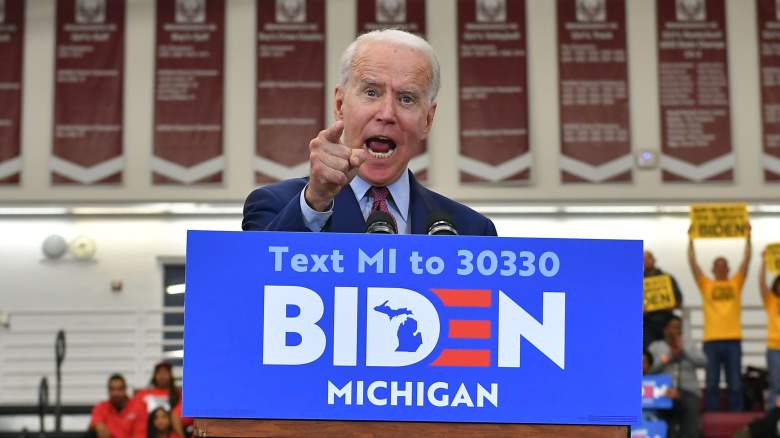
Joe Biden gestures as he speaks during a campaign rally at Renaissance High School in Detroit on March 9.
Sometimes to understand elections it helps to be an expert. Knowing where to find data, how to interpret it, and put it into proper context is a skill that is developed over a lifetime of watching elections and sifting through the breadcrumbs to explain what happened in a particular election.
And sometimes you just look at Joe Biden’s week and all there is to know is he won. He won big, He won everywhere and with almost everyone.
It doesn’t take an expert to look at the map of South Carolina to understand where Biden did well.
You don’t have to have a higher math degree to look at the Super Tuesday map to see that Joe Biden won everywhere. Northern and southern states. Rural, urban, and suburban. From states with mostly white voters to states with significant diversity, the former Vice President was the winner.
It’s hard to find a silver lining for Sanders. He lost the delegate lead and his forecasted odds of winning a majority of delegates prior to the convention crashed as Biden’s soared.
The parade of candidates out of the race after South Carolina and then Super Tuesday, with many endorsing Biden, has led to an impression of inevitability for Biden. Of course, the funny thing about inevitability is we’ve gone through several cycles of competing ideas of “inevitability” that quickly, within a day or two, fade away to be replaced by the next.
The challenge for Sanders is to change the current course of the race. There are things that can happen, some he can influence, others he can’t.
Events are obviously a major source of change but beyond the candidate’s control. Does Joe Biden make an unforced error? Are there some undiscovered damaging quotes in his past that can be brought to light? Will President Donald Trump tweet or do something in an effort to damage Biden that will in some way lead Democratic voters to question Biden’s ability to take on and defeat the President (it’s the main issue according to most Democrats).
Eventually, though Sanders has to win more votes and delegates than Biden and the map is daunting for him.
The six primaries on Tuesday are at best a mixed bag for Sanders.
- Idaho (20 pledged delegates)
- Michigan (125 pledged delegates)
- Mississippi (68 pledged delegates)
- Missouri (68 pledged delegates)
- North Dakota (14 pledged delegates)
- Washington (89 pledged delegates)
There’s not a lot of polling on any of these states but at first glance, Idaho, North Dakota, and Washington are Sanders’ best bets for wins. He’s going to be looking to run up the score in Washington which he won easily in 2016 while netting 47 delegates over Hillary Clinton. Voters received their ballot by mail on February 21st, so a good number of votes have already been cast. This may help Sanders who did well in early voting in a place like Texas only to see Biden overwhelm him in day of voting.
Based on South Carolina and his Super Tuesday results, Biden has to be favored in Mississippi and Missouri. The challenge for Sanders will be to keep the margins close but it will be a challenge for him.
That leaves Michigan as a major battleground.
Sanders was something of the surprise winner there in 2016, when he beat Clinton by just over a percentage point (which netted him a grand total of 4 more delegates than Clinton).
Beyond that Sanders is looking at a tougher road in the near future.
The following week is Arizona, Illinois, Florida, and Ohio where he lost to Clinton by varying degrees in 2016.
None of this is to say Sanders can’t win but he’s going to need something to change the trajectory of the race given the upcoming map. Does the Democratic presidential primary have one more shock twist in it? Supporters of Joe Biden hope not, while Team Sanders is banking on it.
READ NEXT: DNC Will Raise Debate Threshold After Tulsi Gabbard Earns 2 Delegates